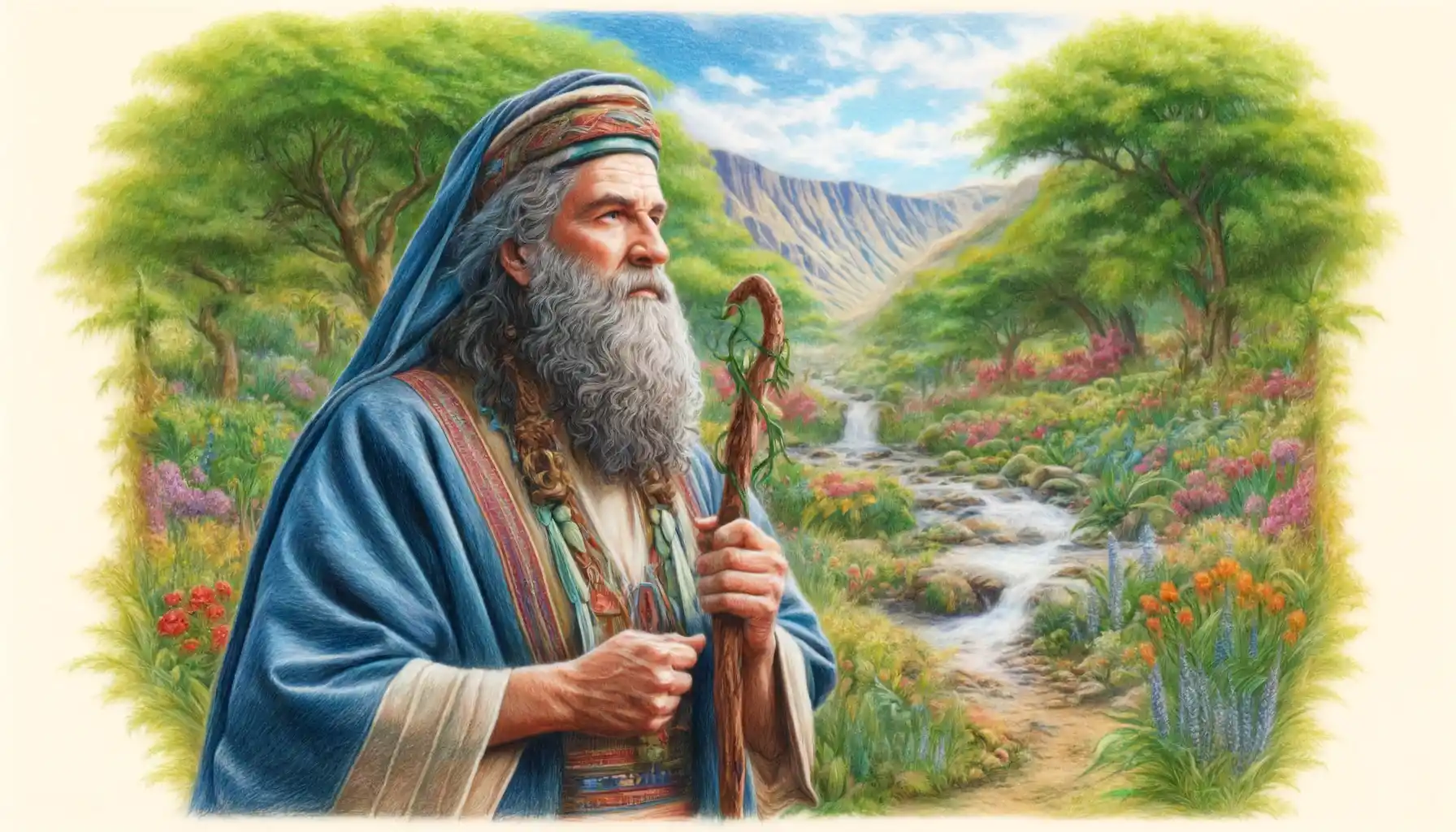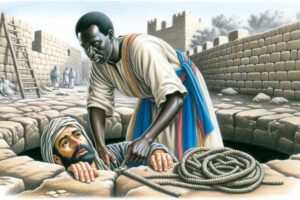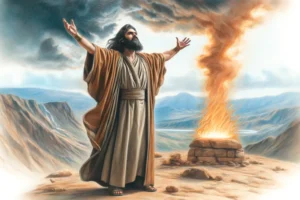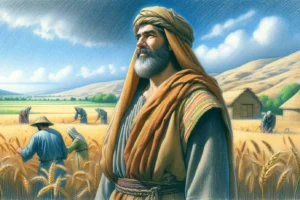
Elisha: Successor of Elijah
Elisha, a significant figure in the Hebrew Bible, is known for his role as the successor to the prophet Elijah. Here are some quick facts about him:
- Succession: Elisha was chosen by God to succeed Elijah, symbolized by Elijah casting his cloak upon him as a sign of his appointment.
- Prophetic Ministry: His ministry was marked by numerous miracles and prophecies, underscoring his role as a powerful prophet in Israel.
- Miracles: Elisha performed many notable miracles, including purifying a spring of water, multiplying a widow’s oil, and raising a child from the dead.
- Military Counsel: He provided critical military advice to the kings of Israel, often involving miraculous interventions.
- Spiritual Inheritance: He requested and received a double portion of Elijah’s spirit, a request granted to signify that he would inherit a double measure of Elijah’s prophetic power.
- Death and Legacy: Elisha died of natural causes but continued to perform miracles even after his death; a dead man came back to life after his body touched Elisha’s bones.
Elisha, the prophetic successor to Elijah in the Hebrew Bible, is a figure of immense significance in the narrative of ancient Israel’s history, depicted primarily in the Books of 1 and 2 Kings. His life and ministry encompass a series of dramatic miracles and episodes that underscore his spiritual authority and prophetic mission. Here’s a detailed analysis of Elisha’s biblical account:
Context and Historical Setting
Elisha emerges during a tumultuous period in Israel’s history, characterized by political instability and idolatry under the reigns of various kings. He serves during the 9th century BCE, a time when Israel was divided into the northern kingdom (Israel) and the southern kingdom (Judah). His ministry overlaps with several kings, including Jehoram, Jehu, Jehoahaz, and Joash.
Call to Prophethood
Elisha’s call to prophethood is dramatic and symbolic (1 Kings 19:16-21). Elijah, directed by God, anoints him as his successor by placing his own cloak on Elisha, who is plowing in the field at the time. Elisha’s response is immediate; he slaughters the oxen he was using, uses the plowing equipment for fuel to cook the meat, and follows Elijah, indicating his total commitment to his new prophetic role.
Miracles and Ministry
Elisha’s ministry is marked by a series of miracles that emphasize God’s power and Elisha’s role as God’s instrument. These miracles are both symbolic and practical, addressing both individual needs and broader national concerns:
- Parting of the Jordan River: Elisha, following in the footsteps of his mentor Elijah, parts the waters of the Jordan River, allowing him and his followers to cross on dry ground (2 Kings 2:14).
- Healing of the Waters of Jericho: Elisha purifies the contaminated waters of Jericho, making them safe to drink and ending a period of infertility in the land (2 Kings 2:19-22).
- Judgment on Mocking Youths: Elisha is mocked by a group of young boys for his baldness. In response, he calls upon divine judgment, and two bears come out of the woods and maul 42 of the youths (2 Kings 2:23-24).
- Healing of Naaman’s Leprosy: Naaman, a commander of the Syrian army, seeks Elisha’s help to cure his leprosy. Elisha instructs him to wash in the Jordan River seven times, and Naaman is healed (2 Kings 5:1-14).
- Multiplication of the Widow’s Oil: Elisha assists a widow who is in debt by miraculously multiplying her small jar of oil, allowing her to pay off her debts and provide for her family (2 Kings 4:1-7).
- Raising the Shunammite’s Son: Elisha restores life to the son of a Shunammite woman who had been hospitable to him, bringing the boy back from death (2 Kings 4:18-37).
- Poisonous Stew Made Edible: Elisha neutralizes a pot of stew that had been poisoned, making it safe for consumption for the sons of the prophets (2 Kings 4:38-41).
- Healing of Hazael’s Illness: Elisha prophesies to Hazael that he will become king of Syria and also reveals to him the illness he will inflict on King Ben-Hadad. Later, Hazael becomes king and carries out the prophecy (2 Kings 8:7-15).
Prophetic Actions and Political Involvement
Elisha’s role extends beyond performing miracles—he is also deeply involved in the political and military life of Israel. His interaction with kings and his involvement in the anointing of Jehu as king (2 Kings 9:1-13) demonstrate his significant influence in shaping Israel’s destiny. These actions often carry deeper theological meanings, emphasizing themes of judgment and redemption.
Death and Legacy
Elisha’s death is recorded in 2 Kings 13:14-20. Remarkably, even in death, Elisha’s bones revive another dead man, a final miracle that underscores his powerful spiritual legacy. His prophetic ministry left a lasting impact on Israel, remembered as a time of extraordinary divine intervention.
Theological Significance
Elisha’s life and miracles serve multiple theological purposes:
- Demonstration of God’s Sovereignty: Elisha’s miracles underscore God’s control over nature, life, and history.
- Symbol of God’s Care: His actions often meet the immediate needs of individuals, showing God’s concern for the downtrodden and needy.
- Continuity of Prophetic Authority: Elisha carries forward Elijah’s mission, emphasizing the continuity of God’s message through different prophets.
Elisha’s prophetic career, rich with signs and wonders, illustrates a period when God actively communicated His will through prophets, guiding, and sometimes directly intervening in the affairs of His people. His legacy is foundational in the history of Israelite prophecy, setting precedents for understanding the role and power of God’s messengers.



